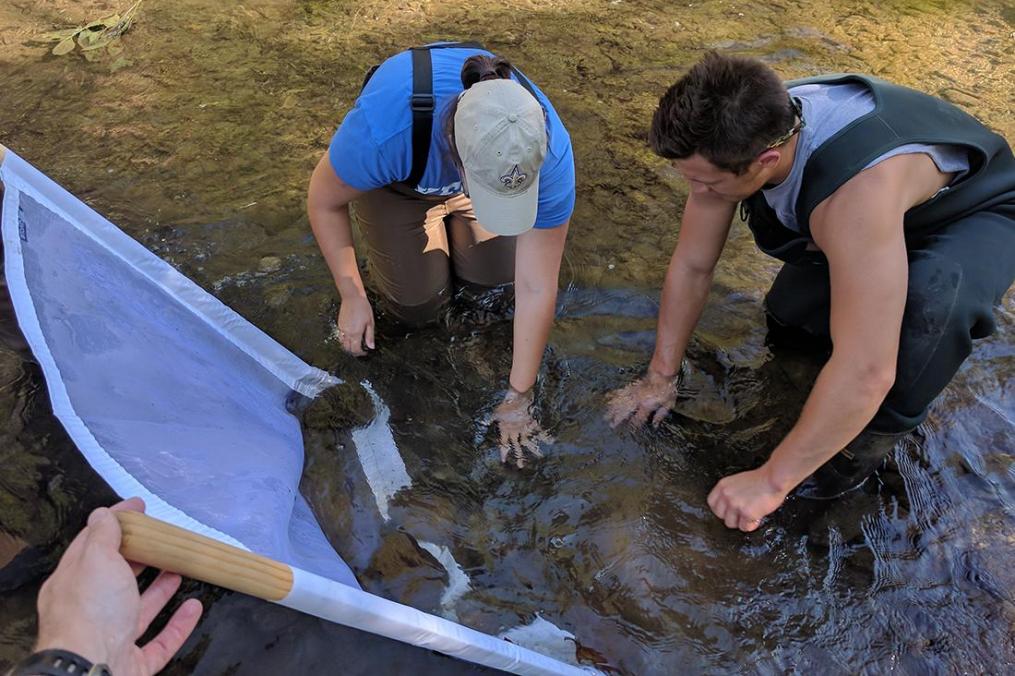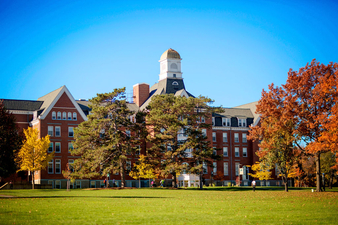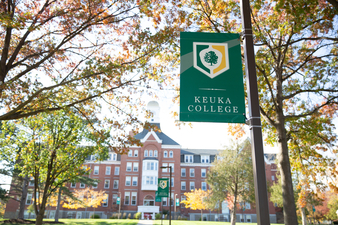Tell us a little about yourself.
As a five-year-old, my first memory of wanting to be a biologist was when my parents took me to the Mystic Aquarium in Mystic, Connecticut. I couldn’t believe that people got paid to work with animals and be involved with such important causes. The rest, as they say, is history.
Generally speaking, my research focuses on the ecophysiology of animals, especially reptiles and amphibians. I am also interested in assessing how environmental contaminants affect local watersheds.
I decided to become a professor because I wanted to be a mentor to students in the same way that my professors mentored me when I was an undergraduate. Their input profoundly changed my life and gave me the drive to succeed.
What is the title of your research project?
Keuka Lake Watershed Analysis
When and where do the studies take place?
The studies are ongoing and take place seasonally at strategic locations at the Keuka Outlet (in Penn Yan), Keuka Inlet (in Hammondsport) and Sugar Creek (the Branchport inlet).
What do the studies entail?
We are monitoring the macroinvertebrate populations and chemical/physical aquatic parameters at the strategic locations seasonally. Doing so will generate water/stream quality data that will either support or refute the claims made by others. Also, monitoring these parameters along the length of the Keuka Outlet should reveal whether any external discharges (such as sewage effluent) might be affecting the quality of the water as it flows towards Seneca Lake.
What sparked the idea?
There are many unknowns about the quality of water that flows into Keuka Lake. There are also many unsubstantiated opinions about the effect of Keuka Lake outflow (via the Keuka Outlet) into Seneca Lake. Wildly implausible figures are often cited about the effect of Keuka Lake outflow on Seneca Lake water quality (it supposedly harms it), but there is little basis for these assertions.
Has any research been published?
Not yet, but we hope so in the future.
Are you working with anyone on this study?
I am working with a team of Keuka College undergraduates (five at the moment), with support from members of the Penn Yan chapter of the Izaak Walton League, Keuka Lake Association, Cornell University Cooperative Extension, and Finger Lakes Museum and Aquarium.
How does this study affect your students’ learning?
My students are learning EPA-approved methods of water quality testing and stream health assessment, as well as dealing with the challenges of project and experimental design. They are also learning how to network with local and state agencies on issues of importance to the region that they live in. This will hopefully create opportunities for them in the future, as well as spur interest in involving themselves in projects of environmental importance.













